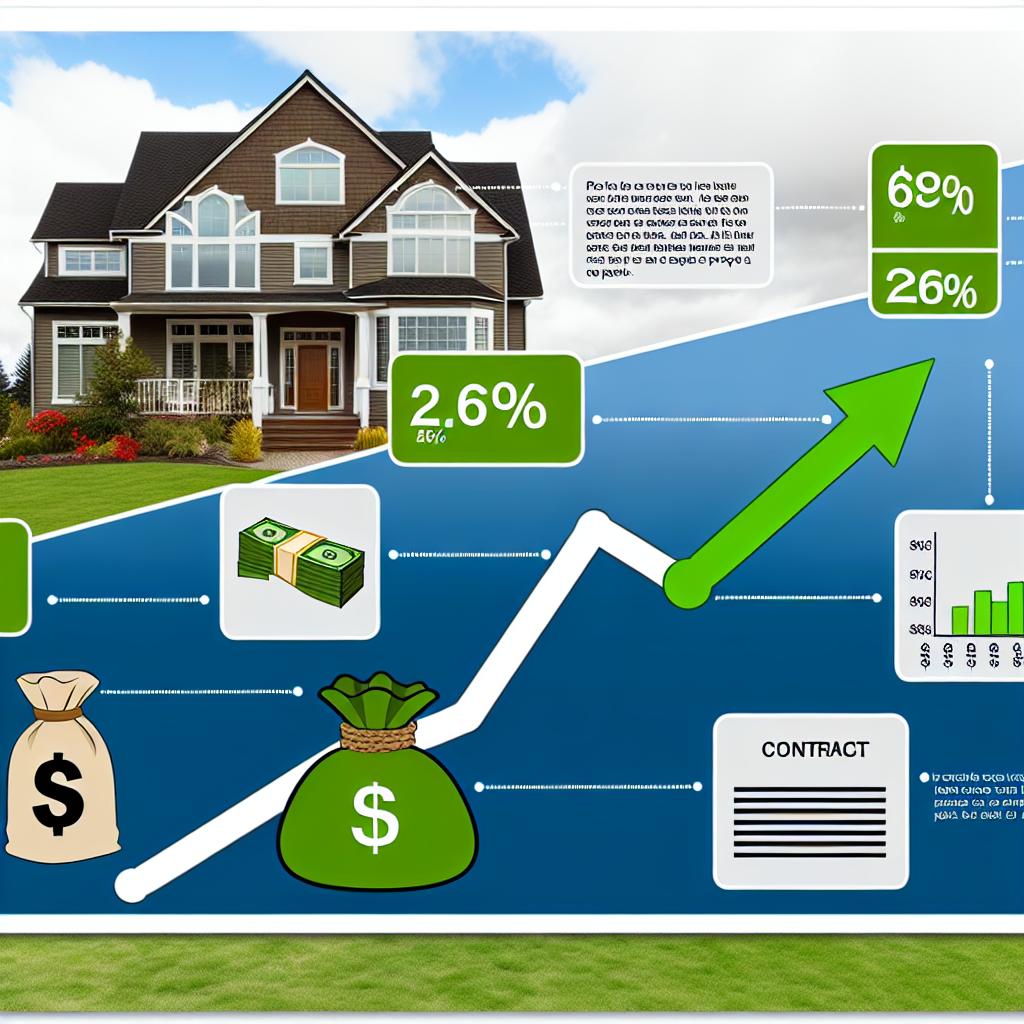Understanding Home Equity Loans
A home equity loan is a financial tool that enables homeowners to tap into the equity they have built up in their homes. This kind of loan provides an opportunity to access funds by leveraging the value of one’s property, which can be especially useful for significant financial requirements such as home renovations, educational expenses, or consolidating existing debts.
When considering home equity, it is essential to understand that equity represents the difference between the current market value of the property and the outstanding debt on the mortgage. As homeowners make mortgage payments, the balance decreases, potentially increasing equity. Additionally, if property values in the area rise, equity may further increase.
It is crucial to acknowledge that this type of loan uses the home itself as collateral. Understanding both the benefits and the risks involved will help in making a well-informed decision about whether this financial product aligns with individual goals and financial situations.
How Home Equity Loans Work
The process of obtaining a home equity loan begins with a homeowner seeking to leverage their property’s equity. Lenders typically assess the market value of the property to determine how much equity is available for borrowing. Homeowners can often borrow up to 80-85% of their available equity.
For example, consider a home valued at $300,000 with an outstanding mortgage of $200,000. In this scenario, the homeowner may have $100,000 worth of equity. Depending on the lender’s policies, a significant percentage of this amount could be accessed as a loan.
Fixed Interest Rates: One of the appealing features of many home equity loans is the fixed interest rate. With a fixed rate, the interest remains unchanged throughout the loan term, allowing borrowers to plan for future payments predictably. This stability can be a significant advantage for long-term financial planning, as it provides assurance against potential rate hikes.
Repayment Terms: Similar to primary mortgages, home equity loans come with specific repayment terms, typically ranging from 5 to 30 years. Regular monthly payments are required, covering both the principal and interest portions of the loan. Developing a sound repayment strategy is essential to ensure that the home, which serves as collateral, is not put at risk.
Potential Benefits of Home Equity Loans
Home equity loans offer various potential benefits that can make them an attractive option for accessing funds. Here are some key advantages:
Lower Interest Rates: Compared to other forms of credit, such as credit cards or personal loans, home equity loans generally feature lower interest rates, making them a cost-effective alternative for borrowing.
Lump Sum Payment: Upon approval, borrowers receive a lump sum amount. This feature is particularly useful for addressing specific, large-scale financial needs, providing immediate access to substantial funds.
Tax Deductibility: In some instances, the interest paid on a home equity loan may be tax-deductible. However, it is important to consider current tax regulations and consult with a tax professional to confirm eligibility for such deductions.
Understanding the Risks
While home equity loans present several benefits, they also carry inherent risks that must be carefully weighed.
Secured Loan: As these loans are secured by the home itself, failing to meet repayment obligations could lead to foreclosure, potentially resulting in the loss of the property. Therefore, it is imperative to establish a clear and workable repayment plan before taking out the loan.
Fluctuating Home Values: Property values can fluctuate due to various factors in the real estate market. A decrease in home value may influence the available equity and could create situations where the outstanding loan balance exceeds the home’s worth.
Increased Debt: Taking on additional debt by leveraging home equity increases the overall debt burden. Thus, assessing one’s total financial picture, including current and future obligations, is vital to ensure manageable debt levels.
Factors to Consider Before Applying
Several additional factors are critical when deciding whether to pursue a home equity loan:
Credit Score: Lenders typically evaluate credit scores as part of the approval process. A higher credit score can lead to more favorable loan terms, such as lower interest rates and higher loan amounts.
Loan Amount: Careful determination of the required loan amount ensures that borrowers do not take on unnecessary debt. Calculating total costs related to the intended use of funds will aid in defining the appropriate amount to borrow.
Loan Fees: Home equity loans often come with associated fees such as application fees, appraisal fees, closing costs, and more. Understanding these costs upfront helps in evaluating the total cost of the loan.
Conclusion
Home equity loans provide an effective way to unlock funds at competitive interest rates. However, these loans require thoughtful planning and an understanding of the associated risks. Consulting with financial advisors or directly with lenders can offer valuable insights and guidance. Ultimately, a comprehensive evaluation of one’s financial situation, repayment capability, and the specific loan terms is essential to make an informed and prudent decision.
